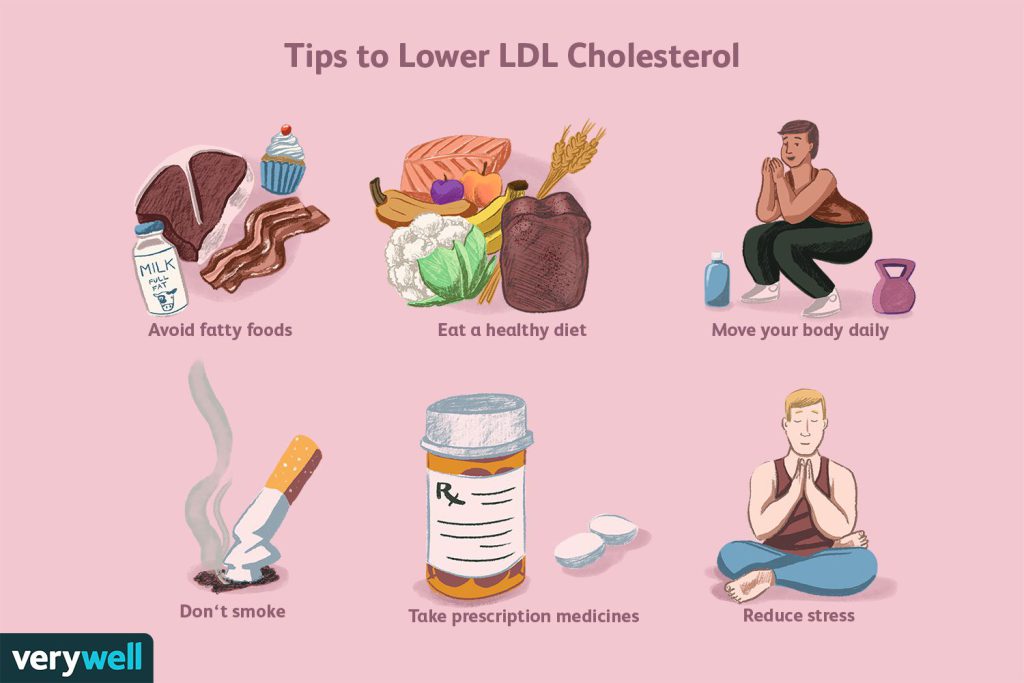
LDL: The “Bad” Cholesterol
Excess LDL cholesterol contributes to plaque buildup (atherosclerosis) in your arteries. This plaque buildup may lead to:
This is why healthcare providers encourage you to have a healthy level of LDL cholesterol.
High levels of LDL cholesterol raise your risk for heart disease and stroke.
Measurement
An LDL level above 100 mg/dL raises your risk of cardiovascular disease. Healthcare providers use the following categories to describe your LDL cholesterol level:
- Normal: Below 100 mg/dL.
- Near optimal: 100 – 129 mg/dL.
- Borderline high: 130 – 159 mg/dL.
- High: 160 – 189 mg/dL.
- Very high: 190 mg/dL or higher.
What causes high LDL cholesterol?
Many factors can raise your LDL level. The factors you have some control over include:
- What you eat. Foods like fatty meats, full-fat dairy products, bakery and fast foods are harmful for your cholesterol levels. That’s because they contain high amounts of saturated fat and, in some cases, trans fat. These two types of fat raise your LDL cholesterol.
- Your body weight. Having overweight/obesity can raise your LDL cholesterol.
- Smoking or using tobacco products. Tobacco use (including smokeless tobacco and vaping) lowers your HDL level. You need a healthy amount of HDL cholesterol to get rid of extra LDL cholesterol from your blood. So, by reducing your HDL level, tobacco use leads to a raised LDL level.
What foods cause high LDL cholesterol?
Foods that contain high amounts of saturated fat are the biggest culprits in raising your LDL cholesterol. Such foods include:
- Bakery items, like doughnuts, cookies and cake.
- Full-fat dairy products, like whole milk, cheese and butter.
- Red meats, like steak, ribs, pork chops and ground beef.
- Processed meats, like bacon, hot dogs and sausage.
- Fried foods, like French fries and fried chicken.
Sources:
https://my.clevelandclinic.org/health/articles/24391-ldl-cholesterol